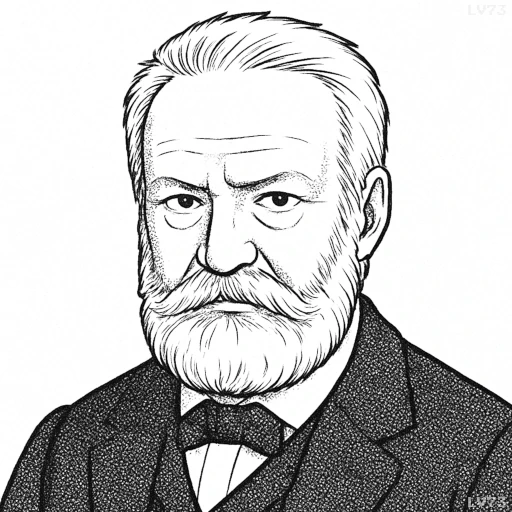“Music expresses that which cannot be said and on which it is impossible to be silent.”

- February 26, 1802 – May 22, 1885
- Born in France
- Author, poet, playwright
table of contents
Quote
“Music expresses that which cannot be said and on which it is impossible to be silent.”
Explanation
In this quote, Victor Hugo highlights the profound power of music as a universal language that can communicate emotions and ideas that words alone cannot fully capture. Music, in Hugo’s view, conveys the inexpressible—those feelings, experiences, or truths that are too complex, subtle, or deep for ordinary language to articulate. It speaks directly to the soul and heart, bypassing the limitations of verbal communication. Furthermore, Hugo suggests that the emotional weight carried by music is so significant that it compels us to respond, whether through listening, performing, or feeling—making silence in the presence of music impossible.
This perspective reflects Romanticism’s celebration of emotion and intuition, where art, and specifically music, is seen as a more authentic form of expression than the limitations of rational language. Music, for Hugo, is not just a form of entertainment, but a profound medium that can convey the depths of the human experience in ways that transcend rational thought or spoken word.
In modern terms, this quote speaks to the universal appeal and power of music in expressing complex human emotions and experiences. Whether in moments of joy, sorrow, love, or longing, music has the ability to communicate what is often beyond language and to connect us to each other in a deeply emotional way. It encourages us to recognize music as a language in itself—one that is capable of conveying the unspoken and the immense, and one that compels us to listen and engage in a way that words cannot always achieve.
Would you like to share your impressions or related stories about this quote in the comments section?


